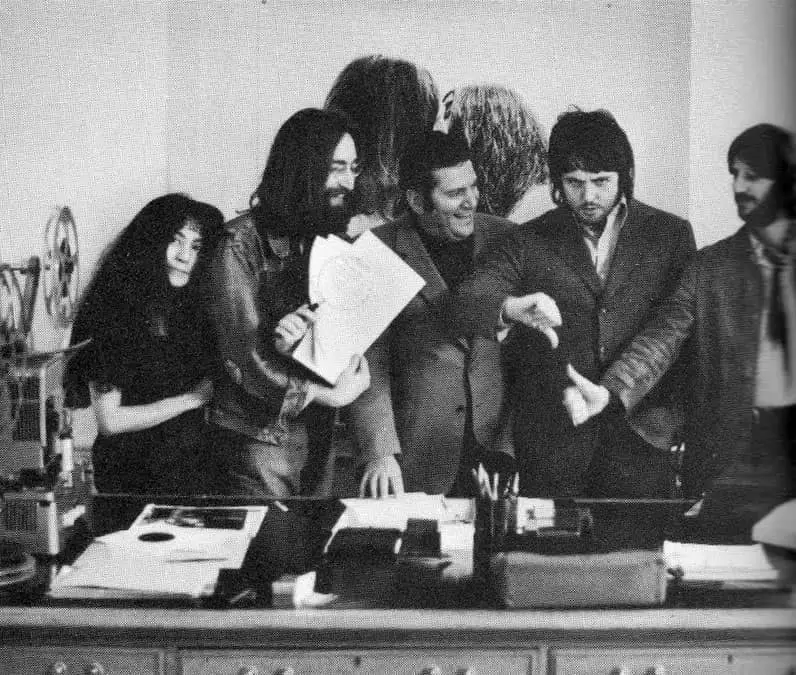
In the waning days of 1970, under the grey skies of London’s legal district, Paul McCartney made a move that would forever change the landscape of rock ‘n’ roll history. On December 31, 1970, McCartney filed a lawsuit against his bandmates – Lennon, Harrison, and Starr – and their shared entity, Apple Corps. This wasn’t just a legal maneuver; it was the final chord in the symphony of The Beatles, a band that had redefined not just music, but an entire generation.
The genesis of this legal battle can be traced back to the untimely demise of Brian Epstein in 1967. Epstein wasn’t just the manager; he was the glue that held The Beatles’ complex world together. His death left a void that the band struggled to fill, spiraling into a series of mismanaged decisions and financial blunders. The once tight-knit group was now a fragmented assembly of individual interests, with McCartney increasingly finding himself at odds with the decisions being made, especially those involving Allen Klein.
Klein, a figure of controversy, was a stark contrast to the familial environment Epstein had fostered. His aggressive management style and opaque handling of Apple’s finances didn’t sit well with McCartney. The disagreements reached a crescendo over the production of the “Let It Be” album, where Klein’s decision to bring in Phil Spector to alter McCartney’s work without his consent was seen as a sacrilege to McCartney’s artistic integrity.
The lawsuit, a heart-wrenching decision for McCartney, was his bid for liberation from a partnership that was now marked by discord and distrust. Legally, McCartney had no direct path to challenge Klein and was forced to take the painful route of suing his closest collaborators – his bandmates. This move was rife with emotional turmoil. McCartney described the period as the weirdest and most difficult time of his life, a sentiment echoed by his bandmates who were equally aggrieved by the unfolding events.
The court proceedings that followed were a mix of legal arguments and public spectacle. McCartney’s legal team argued for the dissolution of the Beatles’ contractual partnership, citing irreconcilable differences and financial mismanagement. The lawsuit sought not just the end of the Beatles as a business entity but also aimed to place Apple Corps under independent management.
This legal drama wasn’t just a footnote in the annals of rock history; it was a stark reminder of the fragile nature of even the most iconic partnerships. The Beatles, once four lads from Liverpool who changed the world with their music, were now entangled in a web of legal and personal conflicts. The dream was over, not with a bang, but with the scratch of a pen on legal documents in a London courtroom.




Leave a Reply